© ROOT-NATION.com - Use of content is permitted with a backlink.
Do you own an iPhone? With iOS 17.4, you won’t be able to distinguish an iPhone from an Android smartphone. “Apple will no longer be the same company. No one expected such changes!” – that was the initial reaction when I heard that, under pressure from the European Union, Apple announced the introduction of a package of radical changes. They specifically pertain to the functioning of the iOS operating system. However, they will only affect EU countries and take effect with the iOS 17.4 beta version. But for some reason, I’m confident that the changes will soon impact iPhones worldwide.
Don’t let the labeling of iOS 17.4, which might seem to imply just a minor software update, deceive you. The changes are so substantial that the latest version of the system could have been released as iOS 18.

The introduction of USB Type-C on the iPhone is just the beginning. The Digital Markets Act (DMA) passed by the European Union imposes numerous software-related requirements on Apple. The company has already announced on its website that the revolution will begin with the upcoming iOS 17.4 update.
And yes, “revolution” is an apt word because the new EU rules effectively dismantle the foundation on which iOS has stood since its inception.
Among the changes, the most surprising is the ability to install applications on Apple smartphones from sources outside the App Store, but there will be several other interesting innovations. We’ll explain what they mean for iPhone users.
Read also: Personal experience: Why I sold my iPhone 14 Pro Max and bought a Galaxy S23 Ultra
Apple has yielded to the EU
Firstly, it’s worth noting that the changes made by Apple are not voluntary, as the company is simply adapting its policies to comply with the Digital Markets Act (DMA). The goal of DMA is to make the situation in the market more fair and competitive. DMA focuses on regulating large digital platforms, known as gatekeepers, which include services like search engines, app stores, and communication tools.
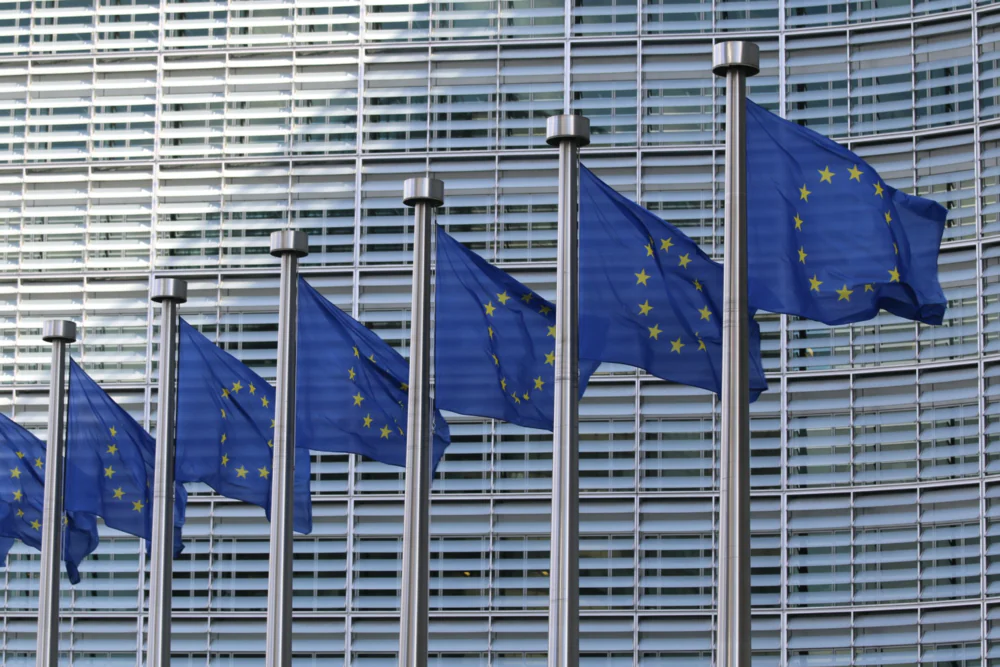
“The changes we are announcing today align with the requirements of the Digital Markets Act in the European Union, while also helping to protect users in the EU from the inevitable increase in risks to privacy and security posed by this legislation”, stated Phil Schiller, an Apple executive responsible for managing the App Store and Apple Events, in a press release.
So, the giant from Cupertino has bowed to the EU. This is not the first time – as under the pressure of EU institutions, the iPhone 15 received the USB Type-C port. The policy change will be implemented in iOS 17.4 (current version iOS 17.3), the upcoming system update release for iPhones registered in the EU.
Read also: Sales Ban on Apple Watch in the U.S.: All the Case Details
Now not only the App Store
Yes, you read it right, iOS 17.4 will introduce alternative app stores for iPhones. And this is indeed a radical step from Apple.
Since 2008, the App Store has remained the sole official source of apps for the iPhone. A few alternatives require complex software jailbreaking procedures that few dare to undertake.
However, the new rules force Apple to open up the iOS platform to other stores. This means that every app publisher will be able to, similar to Android, open their own store and distribute apps independently. Last spring, Microsoft announced plans to open the Xbox Store platform with mobile games for the iPhone.
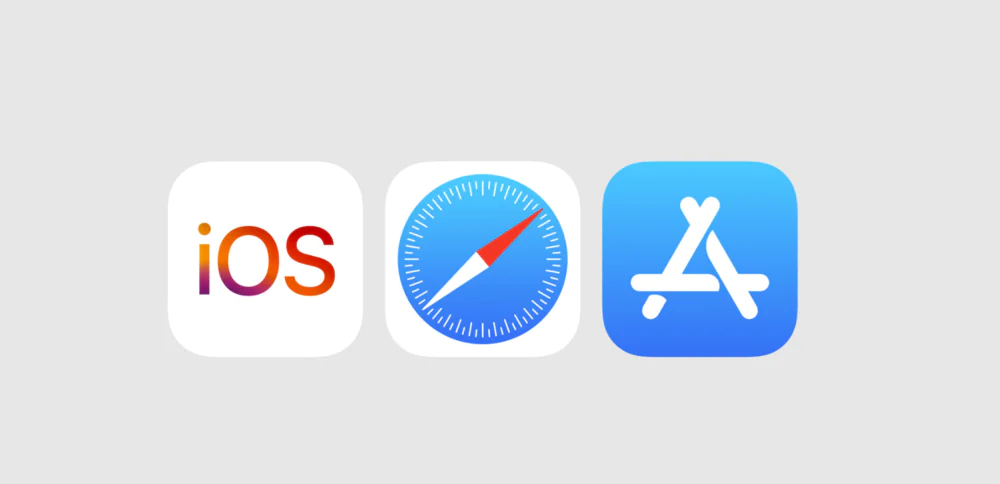
What does this mean for users? Firstly, it means a greater choice of apps, price competition, and the emergence of apps that were previously forbidden on the iPhone. The App Store rules are known for their strict limitations, making it difficult to find cloud gaming apps or even popular games like Fortnite on the Apple store. Developers of such apps will now have the option to distribute them through other channels.
A side effect of the new rules is the potential for fragmentation. It can be expected that some publishers will choose to leave the App Store to avoid Apple’s high commissions. This may mean that users will have to sift through multiple stores to gather their favorite games and apps. To likely counter the exodus of publishers, Apple has announced a reduction in its commissions in the EU.

There is one more nuance. iPhone users will have access to a wider range of tools since developers will have the opportunity to offer their programs through other distribution platforms. However, the process of downloading them to the iPhone will be the same as in the App Store, and iOS apps may be available later than on Android. This is explained by Apple’s announcement of additional security measures, such as the notarization process to ensure that apps from alternative sources are safe to use and do not contain malicious software.
Managing an alternative app store requires significant responsibility and oversight of user interactions, including guidelines on content and moderation processes, anti-fraud measures, transparent data collection policies, and the ability to handle payment and refund issues. To maintain standards of user interaction, Apple will authorize marketplace developers through the Alternative App Marketplace Entitlement (EU) to provide a special app store for iOS after meeting specific criteria and commitments to current requirements, helping to protect both users and developers.
Rumors about Apple finding a way to make money on apps available outside the App Store have also been confirmed. The company is introducing a commission on Core Technology (CTF), which will be 50 cents for each installation in the App Store and/or from other stores, the number of which, according to some estimates, exceeds the threshold of one million installations per year.
Read also: iPhone 14 Pro Max experience: Is it as perfect as everyone thinks?
iOS 17.4 will allow you to use alternative browsers
Yes, theoretically, iOS has allowed alternative browsers for many years, but in practice, there are certain limitations. Apple has always required that all browsers work on the WebKit engine. This is the rendering engine that supports the Apple Safari browser on iOS. Therefore, all third-party browsers are technically just overlays on Safari.
The drawback of this approach is that if a website doesn’t work in Safari, there’s a high likelihood that it won’t work in any iOS browser. This is a realistic scenario since the Chrome engine dominates the market, and web developers prioritize it. I once encountered a corporate web tool that didn’t work at all on iPhone but worked flawlessly on Android.
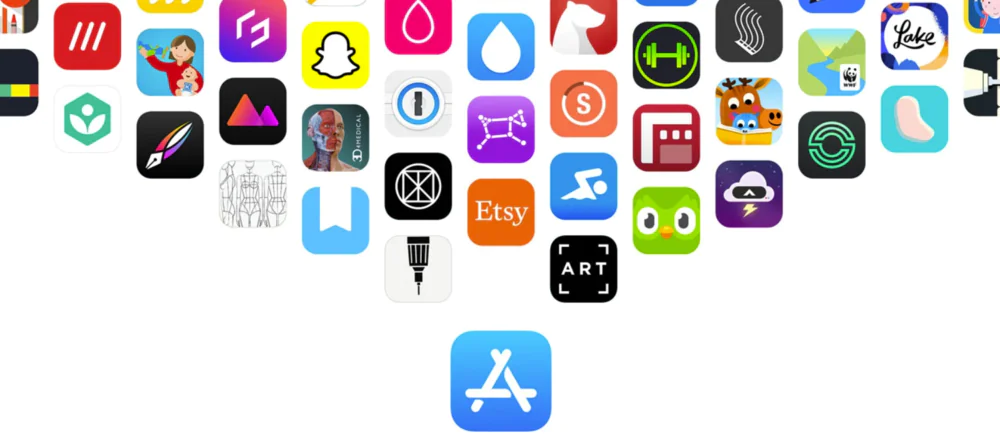
Meanwhile, iOS 17.4, in compliance with EU regulations, will allow the installation of browsers using engines other than WebKit. Therefore, it’s highly probable that Chrome will be re-built using the Chromium engine, and Firefox will have Gecko support. This means alternative browsers will be developed according to their creators’ intentions, just like on all other systems.
With the new update, users will get a new selection screen that allows them to choose their default browser, presenting competing options alongside the system-loaded Safari browser.
Read also: How to add music to Apple Watch and listen to it without a phone
Third-party contactless payments on iPhone
Previously, such a prediction would have been laughed off. Although the first iPhones were equipped with an NFC module for contactless payments as early as 2014, it could only be used through the Apple Pay platform. However, EU regulations are changing this.
In other words, Apple is finally opening its Near Field Communication (NFC) system to other banking and payment apps after being practically limited to Apple Pay for many years. Therefore, contactless payments will also be available on third-party payment apps.
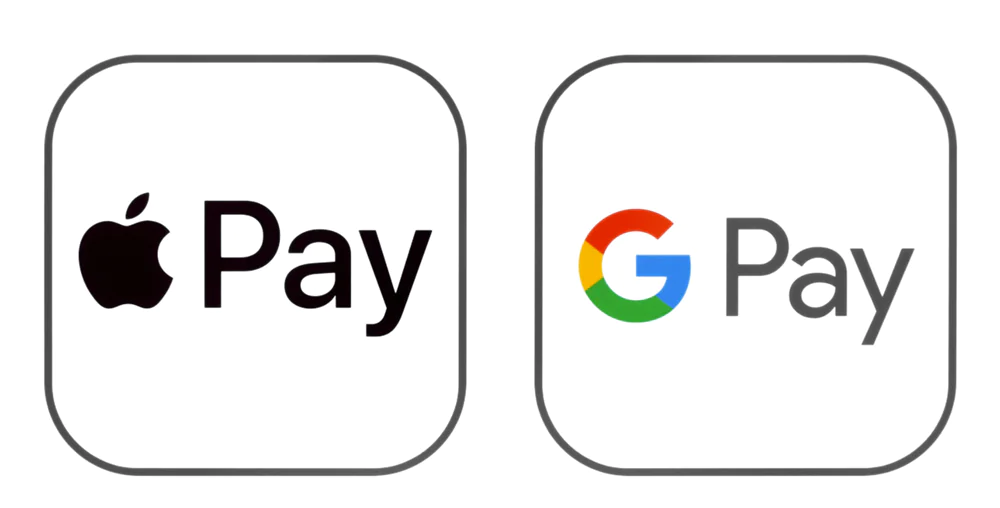
Users will have the option to use apps from their favorite banks or payment services for making contactless payments, which can be more convenient than using Apple Pay.
The new software also allows alternative forms of payment for digital content within apps. Apple’s commission waiver may lead to a reduction in prices for subscriptions and other virtual goods.
Are EU rules an encroachment on user security?
This is what Apple claims. The Cupertino giant is dissatisfied with the introduction of new regulations. It argues that adding new payment options and downloading apps opens up opportunities for malware, illegal and harmful content, and other threats to confidentiality and security.
Indeed, it can be assumed that Apple tried to keep users within its closed ecosystem primarily for financial reasons, but such a policy also had its positive aspects. Since the company had complete control over iOS, it could, at the very least, make it more difficult for scammers to smuggle malicious software onto iPhones.
Therefore, it’s not surprising that Apple started its press release by mentioning the “new threats DMA creates for EU users.” At the same time, the company assures that it has taken measures to “mitigate, but not eliminate” them.
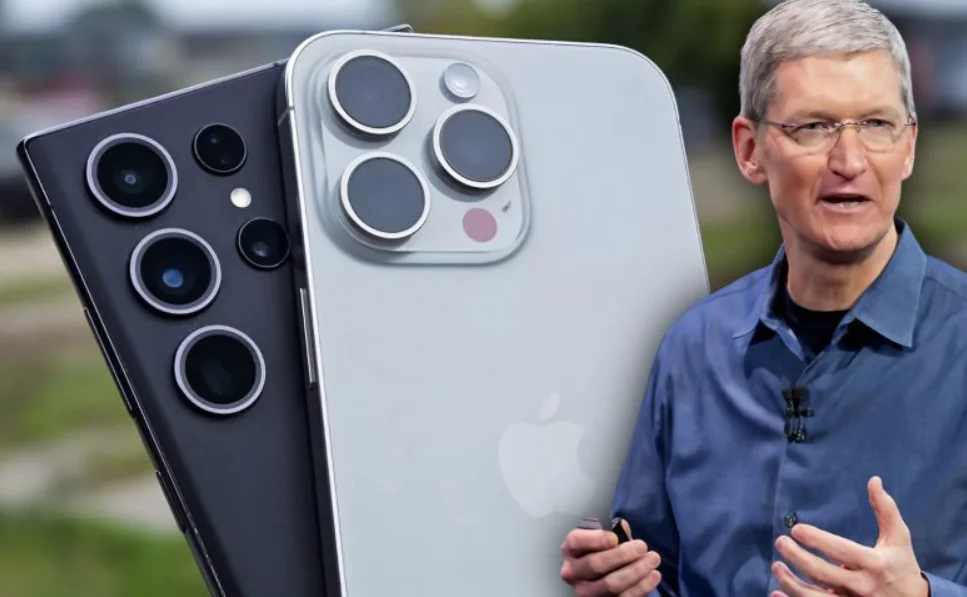
The extensive list of measures taken includes, among other things: certification for apps distributed outside the App Store, an authorization program for alternative stores, additional protection against malicious apps, and notifications of the use of external payment methods.
iOS 17.4 is already available in beta and is expected to be accessible to all compatible iPhone users within a few weeks. Since all the mentioned changes are being introduced against Apple’s will, they will only affect phones available within the European Union. The U.S. version of the system will remain closed for now. However, the future dynamics of these policies remain uncertain.
Read also:
- Microsoft Copilot: Game-Changer or False Path?
- Human Brain Project: Attempt to imitate the human brain

